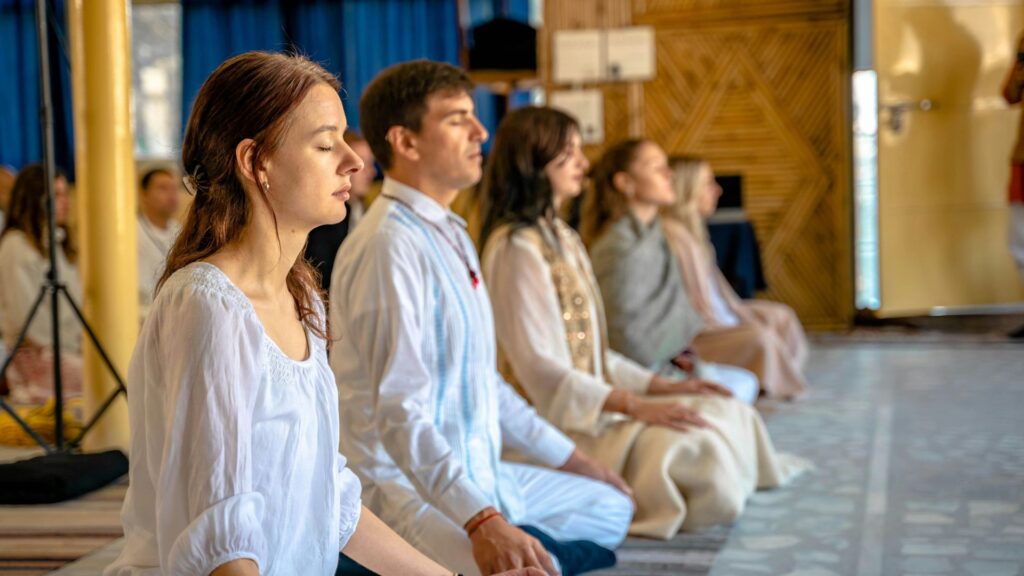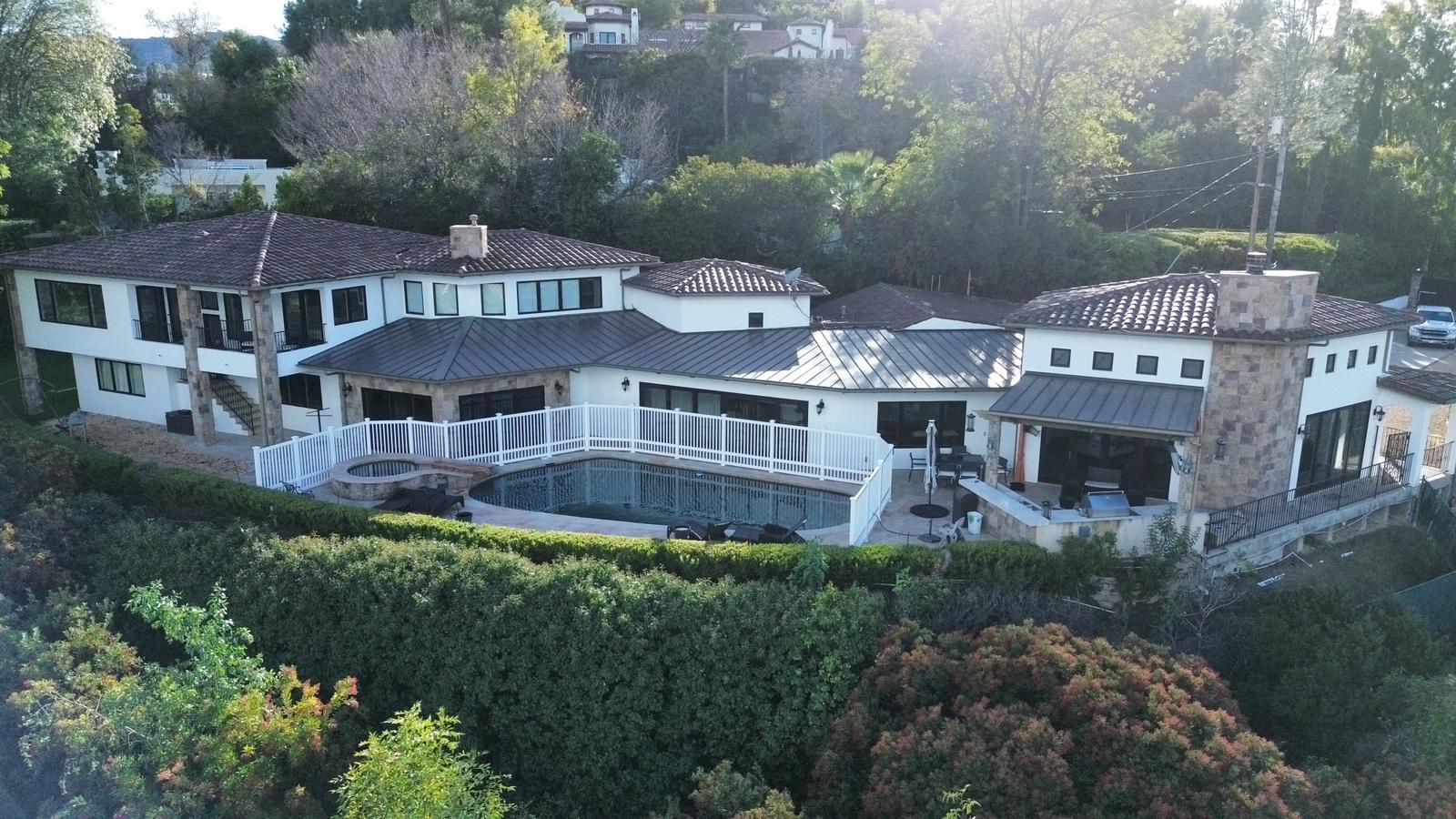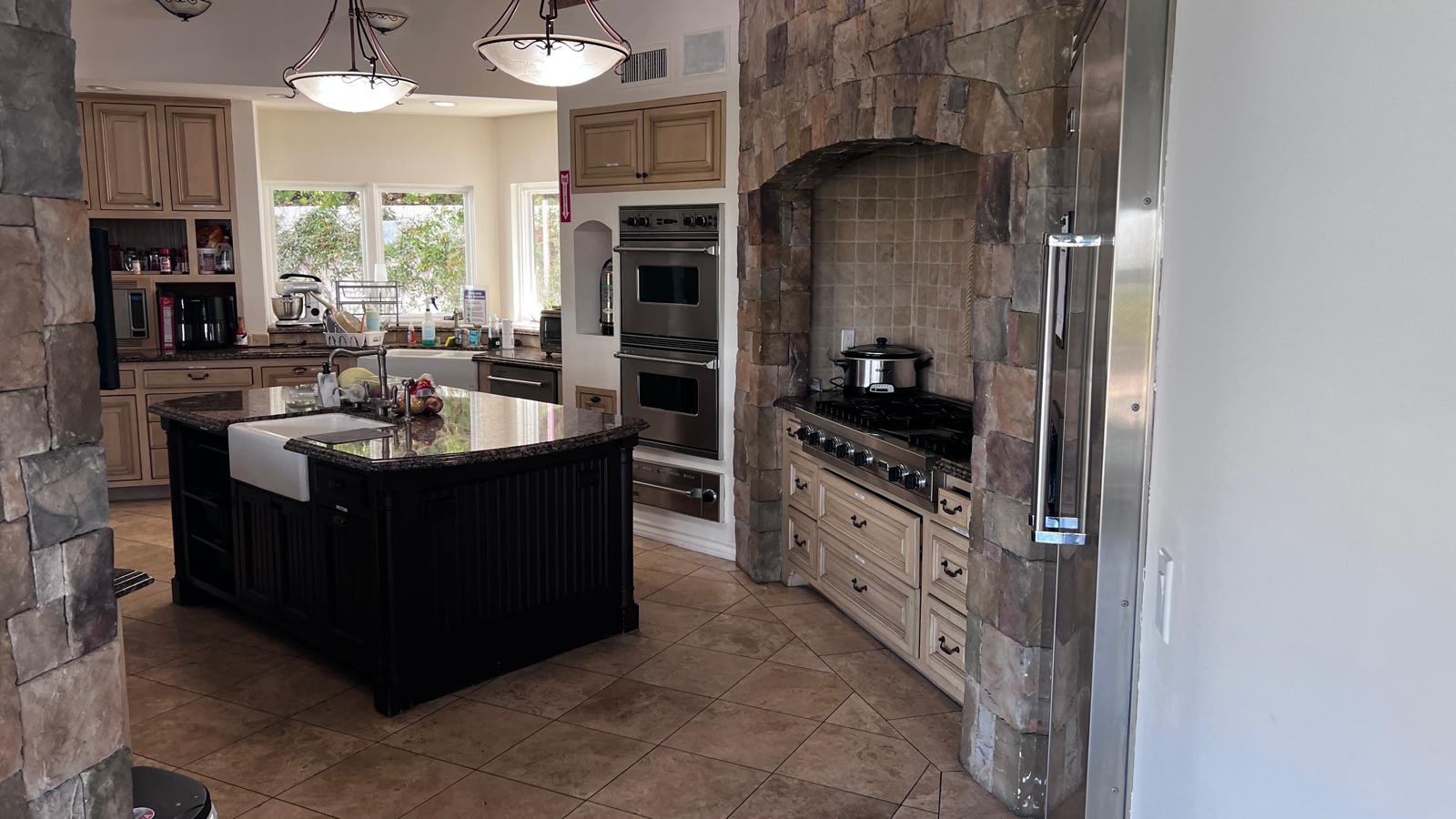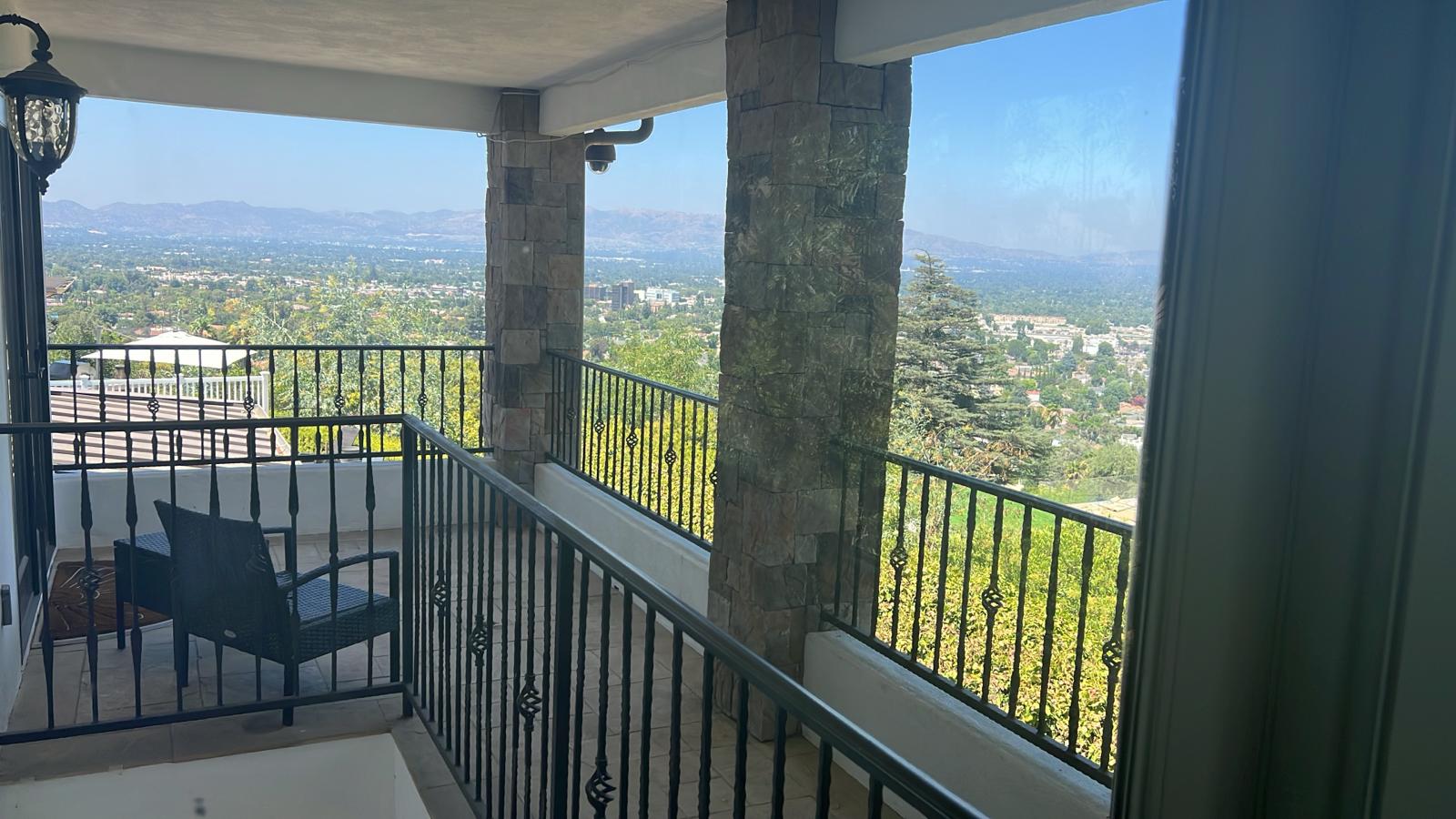
When someone you love is struggling with addiction or a mental health crisis, finding the right level of care can feel overwhelming. In my three decades working in behavioral health and addiction medicine, I’ve seen countless families navigate this difficult journey. One question that surfaces repeatedly is whether residential treatment is the appropriate next step—and for many people in Southern California, Encino offers some of the most comprehensive and compassionate options available.
Residential treatment in Encino CA represents a critical intervention point for individuals whose substance use or mental health conditions require around-the-clock support in a structured, therapeutic environment. Located in the San Fernando Valley with convenient access to Los Angeles, Encino has emerged as a premier destination for those seeking high-quality addiction treatment and mental health care.
Understanding Residential Treatment: What It Really Means
Residential treatment, often called inpatient rehab, involves living at a treatment facility for an extended period while receiving intensive therapeutic services. This isn’t simply a place to stay—it’s a comprehensive healing environment where clinical care, peer support, and personal growth intersect.
The residential model works because it removes you from the environments, relationships, and triggers that contributed to substance use or mental health deterioration. This separation creates space to develop new coping skills, process underlying trauma, and build a foundation for lasting change before returning to everyday life.
Modern Encino CA addiction treatment centers have evolved from institutional settings to recovery-focused communities that honor dignity while providing evidence-based interventions. These programs feel less like hospitals and more like healing retreats, though with the medical oversight and clinical rigor that ensures safety and effectiveness.
Who Benefits from Residential Treatment in Encino
Throughout my career, I’ve recommended inpatient care when outpatient services prove insufficient or when someone’s safety is at immediate risk. Residential treatment is particularly appropriate for:
Severe substance dependence requiring medical detox, especially for alcohol, benzodiazepines, or opioids where withdrawal symptoms pose medical risks. When repeated attempts at outpatient treatment have been unsuccessful, the intensive support of residential care becomes essential.
Co-occurring mental health conditions like depression, anxiety, PTSD, or bipolar disorder alongside substance use. Mental health residential Encino programs excel at addressing this complexity through integrated care rather than treating issues in isolation. Often, substance use began as an attempt to self-medicate emotional pain, and effective dual diagnosis treatment Encino CA programming addresses root causes rather than just surface behaviors.
Environmental factors that continuously undermine sobriety efforts. When someone’s home situation, relationships, or daily routine create constant triggers, residential placement provides the necessary distance to break destructive patterns and establish healthier habits.
Types of Residential Treatment Programs Available
The landscape of Encino behavioral health facilities offers various residential options designed to meet different needs and preferences.
Medical Detoxification
For individuals with physical substance dependence, the journey often begins with Encino drug and alcohol detox. This medically supervised process safely manages withdrawal symptoms while preparing individuals for therapeutic work ahead. Quality detox programs provide 24/7 nursing care, physician oversight, and medications when appropriate to ensure comfort and safety.
Inpatient Residential Programs
Following detox, most individuals transition to inpatient rehab Encino California programs where primary therapeutic work occurs. These programs typically involve living at the facility for 30, 60, or 90 days while participating in individual therapy, group counseling, educational workshops, and various complementary therapies. The residential environment provides structure, accountability, and community—three elements research consistently identifies as crucial for recovery.
Luxury and Executive Treatment
For professionals and individuals seeking enhanced privacy and amenities, luxury rehab centers Encino provide high-end accommodations alongside clinical excellence. The luxury residential treatment California model offers private rooms, gourmet meals, spa-like amenities, and sometimes the ability to maintain limited work communications. This isn’t about pampering—it’s about removing barriers that prevent successful people from seeking help.
Specialized Programs
Quality facilities offer programming tailored to specific populations. Teen residential treatment Encino addresses the unique developmental needs of adolescents, while adult residential programs Encino focus on challenges more common in later life stages. Long-term residential care Encino serves individuals whose recovery requires extended support, typically 90 days to six months or longer. Research shows that treatment duration correlates with outcomes—the longer someone engages in quality care, the better their chances of sustained recovery.
Evidence-Based Therapies: The Clinical Foundation
Effective residential treatment applies interventions that research has validated as effective for addiction and mental health conditions. Modern approaches have evolved from primarily confrontational methods to compassionate, evidence-based techniques.
Cognitive Behavioral Therapy (CBT) helps individuals identify and change thought patterns that contribute to substance use. This practical approach teaches skills for managing cravings, challenging destructive beliefs, and solving problems without resorting to substances.
Dialectical Behavior Therapy (DBT) teaches mindfulness, distress tolerance, emotion regulation, and interpersonal effectiveness. I’ve found DBT particularly valuable for individuals whose substance use stems from difficulty managing intense emotions.
Eye Movement Desensitization and Reprocessing (EMDR) offers powerful intervention for individuals whose addiction connects to trauma. This therapy helps process traumatic memories in ways that reduce their emotional charge. Trauma treatment residential Encino programs increasingly incorporate EMDR because unresolved trauma so frequently underlies addiction.
Group therapy and peer support offer connection with others who understand the struggle firsthand. Residential settings facilitate natural community building as individuals share meals, activities, and daily life together. These peer relationships often become powerful recovery assets.
Holistic Approaches: Treating the Whole Person

Modern residential care recognizes that recovery involves more than cognitive restructuring and behavioral change. A holistic treatment center Encino CA integrates complementary therapies that support healing on multiple levels—these aren’t alternatives to evidence-based care, they’re enhancements that address dimensions of health that traditional therapy sometimes overlooks.
Yoga and meditation teach mindfulness and body awareness, helping individuals reconnect with physical sensations in healthy ways. Art therapy and music therapy provide outlets for processing emotions that words sometimes cannot capture. Nutritional counseling addresses the physical toll that addiction takes on the body, while exercise and outdoor activities rebuild physical strength and provide natural mood enhancement through endorphin release.
Dual Diagnosis Treatment: Addressing Co-Occurring Conditions
According to the Substance Abuse and Mental Health Services Administration, approximately 9.5 million American adults experience both mental illness and substance use disorder in a given year. Dual diagnosis residential treatment Encino takes an integrated approach, recognizing that addiction and mental health conditions influence each other in complex ways.
Quality dual diagnosis treatment requires expertise in both addiction medicine and psychiatry. This means having psychiatrists who can properly diagnose mental health conditions that may be masked by substance use, prescribe appropriate medications when indicated, and monitor how those medications interact with recovery efforts.
Common co-occurring conditions include anxiety disorders, mood disorders like depression and bipolar disorder, PTSD and trauma, and eating disorders. Residential treatment for anxiety Encino and other co-occurring conditions requires longer stays than addressing substance use alone—the complexity demands time to stabilize medications, work through trauma, and develop comprehensive coping strategies.
The Daily Experience: What to Expect
Most residential programs follow structured schedules that provide predictability and purpose. A typical day includes morning meditation, individual therapy sessions, group therapy, educational workshops, evidence-based specialty therapies, recreational activities, communal meals, 12-step or support group meetings, and evening reflection time.
This structure serves multiple purposes: it fills time that might otherwise be spent dwelling on cravings, provides numerous opportunities for therapeutic engagement, and establishes healthy routines that many individuals will maintain after treatment.
Quality residential programs incorporate family therapy, educational sessions for loved ones, and structured visitation when clinically appropriate. Family programming helps relatives understand addiction as a disease rather than a moral failing, teaches communication skills that support rather than enable, and addresses codependency patterns. When families understand recovery principles and learn to establish healthy boundaries, they become assets rather than obstacles to sustained sobriety.
Length of Stay and Treatment Duration
The typical length of stay varies based on individual circumstances, but common durations are thirty, sixty, or ninety days. The National Institute on Drug Abuse states that treatment lasting at least 90 days produces better outcomes than shorter stays. This isn’t arbitrary—meaningful brain healing takes time. Addiction alters neural pathways, and creating new, healthier patterns requires sustained effort over months, not weeks.
Ninety days or more allows for working through resistance that surfaces after initial treatment honeymoon, processing deeper layers of trauma or emotional pain, practicing recovery skills repeatedly until they become second nature, addressing multiple issues rather than just the most pressing concern, and building relationships that provide ongoing support.
Financial Considerations: Insurance, Costs, and Payment Options
The Mental Health Parity and Addiction Equity Act requires insurance plans to cover mental health and substance use treatment comparably to medical care. This means that many insurance plans do cover residential treatment at facilities in Encino, CA, though coverage specifics vary.
Major insurance providers commonly accepted at Encino residential rehab centers include Blue Cross Blue Shield, Aetna, Cigna, United Healthcare, Anthem, Humana, and sometimes Medicare and Medicaid. Many quality facilities employ insurance verification specialists who contact your insurer, explain the recommended treatment plan, and obtain pre-authorization before admission.
For those without insurance or choosing not to use benefits, the average out-of-pocket cost for a 30-day stay typically ranges from $20,000 to $40,000 for standard residential programs. Luxury programs with enhanced amenities can range from $50,000 to $100,000 or more for 30 days.
Many private residential treatment Encino facilities offer financing options or payment plans, allowing families to spread costs over time. Some work with medical lending companies that specialize in healthcare financing, while others offer in-house payment plans based on individual financial circumstances.
Choosing the Right Residential Treatment Center
With multiple Encino recovery center options available, selecting the best fit requires careful consideration. Having guided hundreds of families through this decision, I recommend evaluating several key factors:
Licensing and accreditation: Verify that facilities hold proper California state licensing and maintain accreditation from organizations like The Joint Commission. Licensed and accredited programs undergo regular inspections, maintain qualified staff, and follow ethical guidelines.
Staff credentials: Quality programs employ licensed therapists, certified addiction counselors, and physicians with addiction medicine certification. Staff-to-client ratios matter as well—lower ratios allow for more individualized attention.
Treatment philosophy: Understanding a program’s approach helps determine fit. Consider whether you want 12-step emphasis, alternative recovery pathways, or integrated perspectives. The best programs offer flexibility to tailor treatment to each person.
Aftercare planning: Quality residential programs invest heavily in transition planning, connecting clients with outpatient therapists, support communities, sober living arrangements if needed, and other resources that support ongoing recovery.
Visitation opportunities: Most reputable facilities welcome tours for prospective clients and families. Visiting allows you to assess the environment, meet staff, and determine whether the setting resonates with you.
Residential vs. Outpatient: Understanding the Differences
Families often ask whether residential treatment is truly necessary or if outpatient care would suffice. Both have appropriate uses.
Residential treatment involves living at a facility 24/7 while receiving intensive services. It’s best for severe substance dependence requiring medical detox, co-occurring mental health conditions, previous unsuccessful outpatient attempts, unsafe home environments, or need for intensive structure and separation from triggers. Advantages include 24/7 support, immersive healing environment, immediate access to medical care, and protection from triggers.
Outpatient programs allow living at home while attending scheduled sessions. Levels range from weekly therapy to Intensive Outpatient Programs (IOP) meeting nine hours weekly, to Partial Hospitalization Programs (PHP) meeting five to six hours daily. Outpatient is best for mild to moderate substance use, stable living situations with supportive families, maintaining employment during treatment, or as step-down care following residential treatment.
The question isn’t which is better—both are valuable at appropriate times. The question is which matches current needs and circumstances.
Continuum of Care: PHP, IOP, and Sober Living
Recovery is a journey, not a destination. The residential phase is crucial, but typically one component of a longer continuum. PHP programs Encino serve as bridges between residential treatment and less intensive outpatient care. IOP typically involves nine to twelve hours of programming weekly. Sober living homes Encino CA provide transitional housing for individuals completing treatment but not yet ready to return to previous living situations.
Research shows that sober living significantly improves outcomes, particularly for individuals without stable, supportive housing options. Planning your continuum of care should begin during residential treatment, with your team recommending appropriate next steps based on progress and circumstances.
The Role of Grand View Villas Recovery Center
Grand View Villas Recovery exemplifies quality residential treatment in Encino. The center offers the full continuum of care, from medical detoxification through residential programming to step-down services. This integration ensures continuity—you’re not starting over with new providers at each transition point.
The approach reflects individualized treatment planning where your program reflects your specific needs rather than a predetermined template. With specialized dual diagnosis expertise and luxury options for those seeking enhanced privacy and comfort, Grand View Villas removes barriers that prevent people from seeking help while maintaining clinical excellence.
Frequently Asked Questions About Residential Treatment in Encino, CA
What is the difference between residential treatment (inpatient rehab) and outpatient programs in Encino, CA?
Residential treatment involves living at a facility 24/7 while receiving intensive therapeutic services, providing complete immersion in recovery. Outpatient programs allow you to live at home while attending scheduled treatment sessions. Residential care offers higher intensity, constant support, and separation from triggers, making it appropriate for severe addiction, co-occurring disorders, or when outpatient care has proven insufficient. Outpatient works well for less severe cases, step-down care, or when maintaining work and family commitments is essential.
What types of mental health conditions and addictions are treated at residential facilities in Encino?
Encino residential facilities treat the full spectrum of substance use disorders, including alcohol, opioids, stimulants, benzodiazepines, and other drugs. Mental health conditions commonly addressed include depression, anxiety disorders, PTSD, bipolar disorder, eating disorders, and personality disorders. Many programs specialize in dual diagnosis treatment, providing integrated care for co-occurring conditions. Trauma-focused treatment addresses underlying psychological wounds that often contribute to both addiction and mental health struggles.
What is the typical length of stay at a residential treatment center in Encino, CA?
Length of stay varies based on individual needs, but common durations are thirty, sixty, or ninety days. Research and clinical experience indicate that ninety days provides optimal outcomes for most people, allowing sufficient time for brain healing, skill development, and addressing underlying issues. Some individuals benefit from extended stays of four to twelve months, particularly with severe addiction, multiple treatment episodes, or complex co-occurring conditions.
Do Encino residential treatment centers offer a medically supervised detox program?
Yes, quality Encino facilities provide medically supervised detoxification services as the first phase of treatment for individuals with physical substance dependence. Medical detox includes 24/7 nursing care, physician oversight, and medications when appropriate to manage withdrawal symptoms safely and comfortably. Detox duration varies by substance, typically ranging from three to ten days. Following detox stabilization, individuals transition to residential treatment programming where primary therapeutic work occurs.
What does a typical daily schedule look like in an Encino residential treatment program?
Days follow structured routines that balance therapeutic activities with personal time. A typical schedule includes morning mindfulness practice, individual therapy sessions, group therapy, educational workshops, evidence-based specialty therapies like CBT or EMDR, recreational activities or exercise, communal meals, 12-step or support group meetings, and evening reflection time. Most programs schedule six to eight hours of therapeutic activities daily, with structured wake-up times around seven AM and bedtime around ten PM.
Does insurance cover residential treatment at facilities in Encino, CA?
Many insurance plans cover residential treatment when deemed medically necessary. The Mental Health Parity and Addiction Equity Act requires insurers to cover mental health and substance use treatment comparably to other medical care. Coverage specifics vary by plan, with factors like previous treatment attempts, addiction severity, and co-occurring conditions influencing approval. Quality facilities employ insurance verification specialists who contact your insurer and clarify coverage details before admission.
Which major health insurance providers are accepted at Encino residential rehab centers?
Most Encino residential facilities accept major insurance providers including Blue Cross Blue Shield, Aetna, Cigna, United Healthcare, Anthem, Humana, and others. Some facilities also accept Medicare and Medicaid, though availability varies. Private pay options exist for individuals without insurance or choosing not to use benefits. Contact specific facilities to confirm whether they accept your particular plan and their network status.
What is the average out-of-pocket cost for a 30-day stay at an Encino residential treatment center?
Out-of-pocket costs vary based on amenities and services. Standard residential programs typically range from twenty thousand to forty thousand dollars for thirty days. Luxury programs with enhanced privacy and premium amenities can range from fifty thousand to over one hundred thousand dollars monthly. With insurance coverage, out-of-pocket expenses depend on your deductible, copays, and coinsurance percentages. Many facilities offer payment plans or financing options.
Do I need a referral from a doctor to be admitted to a residential treatment center in Encino?
Most residential treatment centers accept both physician referrals and self-referrals. You can contact facilities directly to begin the assessment process without a doctor’s referral. However, some insurance companies require referrals or medical necessity documentation from healthcare providers before approving coverage. The admissions staff at your chosen facility can clarify specific requirements for your situation.
Are there financing options or payment plans available for residential treatment in Encino, CA?
Yes, many Encino residential facilities offer financing options and payment plans. Some work with medical lending companies specializing in healthcare financing, allowing you to spread costs over months or years. Other facilities provide in-house payment plans based on individual financial circumstances. Discuss financial concerns openly with admissions staff—they understand these barriers and want to help identify workable solutions.
Do residential treatment centers in Encino, CA offer specialized dual diagnosis treatment?
Yes, quality Encino residential centers provide specialized dual diagnosis treatment for individuals with co-occurring substance use and mental health disorders. These programs integrate addiction treatment with psychiatric care, recognizing that conditions like depression, anxiety, PTSD, and bipolar disorder frequently co-exist with substance use. Dual diagnosis teams typically include addiction specialists, psychiatrists, licensed therapists, and psychiatric nurses who collaborate to address both conditions simultaneously.
What evidence-based therapies (e.g., CBT, DBT, EMDR) are used in Encino residential programs?
Encino residential programs utilize evidence-based therapies proven effective through research. Cognitive Behavioral Therapy (CBT) helps individuals identify and change thought patterns contributing to substance use. Dialectical Behavior Therapy (DBT) teaches emotion regulation and distress tolerance. Eye Movement Desensitization and Reprocessing (EMDR) addresses trauma underlying addiction. Other common modalities include Motivational Interviewing and various forms of group therapy. Quality programs combine multiple approaches tailored to individual needs.
Are there luxury or executive residential treatment options available in Encino, CA?
Yes, Encino offers luxury and executive residential treatment options for professionals and individuals seeking enhanced privacy and upscale amenities alongside clinical excellence. These programs provide private accommodations, gourmet meals, spa-like settings, and sometimes limited ability to maintain work communications. Luxury treatment removes barriers that prevent successful professionals from seeking help while maintaining the clinical rigor necessary for effective treatment.
Do residential facilities in Encino offer holistic therapies (e.g., yoga, meditation, art therapy)?
Many Encino residential facilities incorporate holistic therapies that complement evidence-based psychological treatments. Common offerings include yoga and meditation, art therapy and music therapy, nutritional counseling, exercise and fitness programs, outdoor activities, acupuncture, and massage therapy. These holistic approaches address physical, emotional, and spiritual dimensions of wellbeing. The best programs integrate holistic modalities with evidence-based treatments.
Is family therapy or family visitation a part of the residential treatment process in Encino?
Yes, quality residential programs recognize that addiction affects entire family systems and include family components in treatment. Most offer family therapy sessions, educational programming, and visitation when clinically appropriate. Many facilities initially limit contact to allow clients to focus, then gradually introduce supervised family visits as treatment progresses. Family involvement significantly improves outcomes by creating supportive environments that reinforce recovery efforts.
What kind of aftercare planning and support is provided after completing residential treatment in Encino, CA?
Comprehensive aftercare planning begins during residential treatment and is crucial for sustained recovery. Quality programs connect clients with outpatient therapists, coordinate step-down care to PHP or IOP programs, facilitate connections with support communities, arrange sober living housing when needed, and provide continuing psychiatric care. Many facilities offer alumni programs with ongoing support groups and check-in opportunities. Strong aftercare planning significantly reduces relapse risk.
How should I choose the best residential treatment center in Encino for my specific needs or a loved one’s needs?
Choosing the right facility requires evaluating several factors: verify state licensing and accreditation, examine staff credentials and qualifications, assess treatment philosophy alignment with personal values, inquire about evidence-based therapies offered, evaluate aftercare planning, consider practical factors like insurance acceptance and location, and visit facilities when possible. Trust your instincts about whether the environment feels conducive to healing.
Are the residential treatment facilities in Encino, CA licensed and accredited (e.g., by The Joint Commission)?
Reputable Encino residential treatment centers maintain California state licensing and seek accreditation from recognized organizations. The Joint Commission represents the gold standard for behavioral health accreditation, indicating rigorous quality and safety standards compliance. Other relevant accreditations include CARF and LegitScript certification. Always verify a facility’s licensing and accreditation status before admission to ensure quality care and safety.
Can I visit the Encino residential treatment center before committing to a program?
Most reputable facilities welcome and encourage tours for prospective clients and families. Visiting allows you to assess the physical environment, meet staff members, observe daily operations, and determine whether the setting feels right for your needs. During tours, notice facility cleanliness, staff interactions with residents, available amenities, the overall atmosphere, and the surrounding neighborhood. Many facilities also offer virtual tours for those unable to visit in person.
Do Encino residential treatment centers have programs specifically for teens/adolescents or young adults?
Some Encino facilities offer specialized programming for specific age groups, recognizing that adolescents and young adults face unique developmental challenges requiring tailored approaches. Teen programs address peer pressure, identity formation, and family dynamics alongside substance use treatment. Young adult programs focus on emerging independence, career development, and relationship skills. Age-specific programming provides peer groups at similar life stages and addresses developmental needs more effectively.
A Message of Hope
After three decades in this field, if I’ve learned anything, it’s that recovery is always possible. I’ve witnessed people who seemed completely lost find their way back to health, purpose, and joy. I’ve watched families heal from years of pain and rebuild trust.
Residential treatment in Encino CA offers a pathway to transformation. It’s not magic—it’s hard work, vulnerability, and commitment. But for those willing to engage fully in the process, the results can be life-changing.
Whether you’re considering treatment for yourself or a loved one, know that taking this step demonstrates profound courage. Asking for help isn’t weakness—it’s wisdom. You deserve recovery. You deserve health. You deserve a life lived fully, not half-present and struggling.
If you’re ready to take the next step, reach out to facilities like Grand View Villas Recovery Center or other quality programs in Encino. Schedule an assessment. Ask questions. Tour facilities. Recovery begins with a single decision—the decision to seek help.
If you or a loved one is struggling with addiction or mental health challenges, contact Grand View Villas Recovery Center today at to learn more about residential treatment options in Encino, CA.





